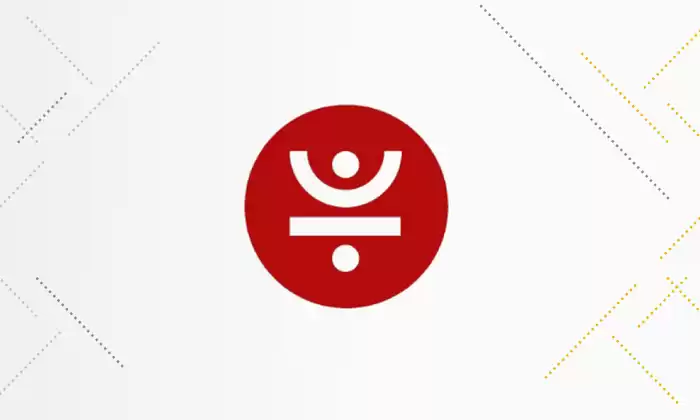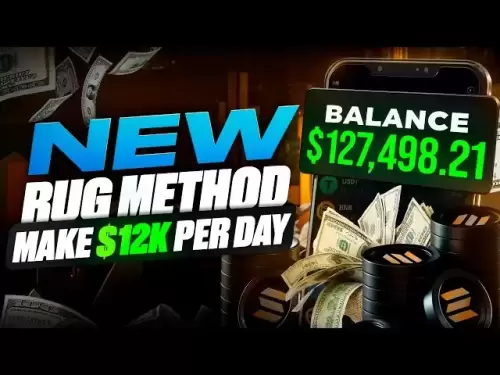-
 Bitcoin
Bitcoin $112400
-1.07% -
 Ethereum
Ethereum $3409
-3.27% -
 XRP
XRP $2.784
-6.60% -
 Tether USDt
Tether USDt $0.9997
-0.03% -
 BNB
BNB $739.3
-2.09% -
 Solana
Solana $158.0
-2.90% -
 USDC
USDC $0.9998
-0.02% -
 TRON
TRON $0.3213
-0.94% -
 Dogecoin
Dogecoin $0.1929
-5.01% -
 Cardano
Cardano $0.6974
-2.82% -
 Hyperliquid
Hyperliquid $36.69
-2.31% -
 Sui
Sui $3.327
-4.80% -
 Stellar
Stellar $0.3672
-5.18% -
 Chainlink
Chainlink $15.65
-3.07% -
 Bitcoin Cash
Bitcoin Cash $525.0
-1.68% -
 Hedera
Hedera $0.2291
-6.00% -
 Avalanche
Avalanche $20.91
-2.96% -
 Ethena USDe
Ethena USDe $1.000
0.00% -
 Toncoin
Toncoin $3.520
-1.12% -
 UNUS SED LEO
UNUS SED LEO $8.968
0.14% -
 Litecoin
Litecoin $105.7
0.26% -
 Shiba Inu
Shiba Inu $0.00001181
-1.79% -
 Polkadot
Polkadot $3.492
-2.08% -
 Uniswap
Uniswap $8.800
-3.10% -
 Dai
Dai $0.9999
-0.01% -
 Monero
Monero $289.9
-3.17% -
 Bitget Token
Bitget Token $4.243
-1.27% -
 Pepe
Pepe $0.00001006
-3.67% -
 Cronos
Cronos $0.1248
-5.68% -
 Aave
Aave $249.7
-2.50%
What are the formal channels for purchasing JUST coins?
To acquire JUST coins (JST), choose from formal channels such as centralized exchanges (e.g., Binance, Huobi Global), decentralized exchanges (e.g., Uniswap, SushiSwap), over-the-counter desks, or directly through the JUST platform.
Nov 20, 2024 at 02:39 am

Understanding the Formal Channels for Purchasing JUST Coins
Unlocking the Potential of Decentralized Finance with JUST Coins
In the rapidly evolving realm of blockchain technology, decentralized finance (DeFi) has emerged as a transformative force, empowering individuals to take charge of their financial decisions. Among the multitude of DeFi protocols, JUST stands out as a leading provider of stablecoins, lending, and other financial services. To harness the full potential of JUST, users must first acquire its native token, JUST coins (JST). This comprehensive guide explores the formal channels available for purchasing JST coins, ensuring a seamless and secure entry into the world of DeFi.
Navigating the Options: Exchanging for JST Coins
Centralized Exchanges:
Centralized exchanges operate under the supervision of regulatory authorities, providing users with a familiar and secure platform for trading cryptocurrencies. Popular centralized exchanges that offer JST pairs include:
- Binance: A globally renowned exchange with high liquidity and a wide range of trading pairs, including JST/USDT and JST/BUSD.
- Huobi Global: Known for its strong focus on the Asian market, Huobi offers JST/USDT, JST/BTC, and JST/ETH trading pairs.
- OKX: Another prominent exchange with a substantial user base, OKX provides JST/USDT, JST/BTC, and JST/ETH trading opportunities.
Decentralized Exchanges (DEXs):
DEXs provide peer-to-peer trading without the need for intermediaries, offering anonymity and potentially lower fees. Platforms like Uniswap and SushiSwap facilitate the exchange of JST coins for various cryptocurrencies, including ETH and stablecoins.
Over-the-Counter (OTC) Desks:
OTC desks cater to high-volume traders and institutional investors seeking large block trades. These specialized platforms connect buyers and sellers directly, ensuring privacy and rapid execution.
Direct Acquisition: Joining the JUST DeFi Ecosystem
JUST Platform:
The official JUST platform offers a direct method for purchasing JST coins using supported fiat currencies such as USD and EUR. This option simplifies the acquisition process but may incur higher fees compared to other channels.
Third-Party Wallets:
Certain third-party wallets, such as Trust Wallet and MetaMask, have integrated JUST support. Users can purchase JST coins directly within these wallets, providing convenience and flexibility.
Additional Considerations for a Seamless Purchase
KYC and AML Compliance:
Centralized exchanges and OTC desks typically require users to complete Know Your Customer (KYC) and Anti-Money Laundering (AML) checks for regulatory compliance.
Transaction Fees:
Each purchase channel incurs its own set of transaction fees. Users should compare fees across different platforms to optimize their savings.
Security Measures:
When purchasing JST coins, it is crucial to adopt robust security measures. Choose reputable exchanges, store private keys securely, and stay vigilant against phishing attempts.
Disclaimer:info@kdj.com
The information provided is not trading advice. kdj.com does not assume any responsibility for any investments made based on the information provided in this article. Cryptocurrencies are highly volatile and it is highly recommended that you invest with caution after thorough research!
If you believe that the content used on this website infringes your copyright, please contact us immediately (info@kdj.com) and we will delete it promptly.
- BlockDAG, SEI, Ethena: Top Crypto Performers Under the Microscope
- 2025-08-03 10:50:16
- Bitcoin Blasts Past $119K: How Institutional Adoption and Macro Shifts Fuel the Fire
- 2025-08-03 10:55:16
- Crypto, Grok, and August: Decoding the Latest Trends and Insights
- 2025-08-03 11:10:16
- Crypto, Phishing, and Your Wallet: A New Yorker's Guide to Staying Safe
- 2025-08-03 10:30:16
- Troller Cat Meme Coin Presale Soars: A New King in the Crypto Jungle?
- 2025-08-03 10:30:16
- Grayscale, Altcoin Trust, and Mid-Cap Mania: What's the Deal?
- 2025-08-03 08:50:16
Related knowledge

What is Ethereum’s Slashing mechanism and how to punish malicious behavior?
Feb 20,2025 at 03:08am
Key PointsOverview of slashingDifferent types of slashing in EthereumIncentives and consequences of slashingIdentifying and reporting slashed validato...

What is the verifier node of Ethereum and how to become a verifier?
Feb 19,2025 at 06:00pm
The Verifier Node of Ethereum: A Comprehensive GuideKey Points:What is a Verifier Node?How to Become a Verifier NodeResponsibilities and Rewards of a ...

What is Ethereum’s staking, and how to participate and earn money?
Feb 19,2025 at 04:37pm
Key Points:Understanding Ethereum's Staking MechanismSteps to Participate in StakingBenefits and Rewards of StakingSecurity and Risk ConsiderationsTec...

What is Ethereum’s DAO (Decentralized Autonomous Organization) and how does it work?
Feb 20,2025 at 03:12am
Key PointsDefinition and Structure of a DAOGovernance and Decision-Making in DAOsBenefits and Use Cases of DAOsChallenges and Limitations of DAOsWhat ...

What is Ethereum's multi-signature wallet and how to improve security?
Feb 20,2025 at 02:18pm
Key Points:Understanding the Concept of a Multi-Signature WalletBenefits and Drawbacks of Multisig WalletsRequirements for Setting Up a Multisig Walle...

What is Ethereum's oracle and how to provide data for smart contracts?
Feb 21,2025 at 01:30am
Key Points:Understanding the concept of oracles in EthereumExploring different types of oraclesDetailed guide on how to provide data for smart contrac...

What is Ethereum’s Slashing mechanism and how to punish malicious behavior?
Feb 20,2025 at 03:08am
Key PointsOverview of slashingDifferent types of slashing in EthereumIncentives and consequences of slashingIdentifying and reporting slashed validato...

What is the verifier node of Ethereum and how to become a verifier?
Feb 19,2025 at 06:00pm
The Verifier Node of Ethereum: A Comprehensive GuideKey Points:What is a Verifier Node?How to Become a Verifier NodeResponsibilities and Rewards of a ...

What is Ethereum’s staking, and how to participate and earn money?
Feb 19,2025 at 04:37pm
Key Points:Understanding Ethereum's Staking MechanismSteps to Participate in StakingBenefits and Rewards of StakingSecurity and Risk ConsiderationsTec...

What is Ethereum’s DAO (Decentralized Autonomous Organization) and how does it work?
Feb 20,2025 at 03:12am
Key PointsDefinition and Structure of a DAOGovernance and Decision-Making in DAOsBenefits and Use Cases of DAOsChallenges and Limitations of DAOsWhat ...

What is Ethereum's multi-signature wallet and how to improve security?
Feb 20,2025 at 02:18pm
Key Points:Understanding the Concept of a Multi-Signature WalletBenefits and Drawbacks of Multisig WalletsRequirements for Setting Up a Multisig Walle...

What is Ethereum's oracle and how to provide data for smart contracts?
Feb 21,2025 at 01:30am
Key Points:Understanding the concept of oracles in EthereumExploring different types of oraclesDetailed guide on how to provide data for smart contrac...
See all articles

























































































